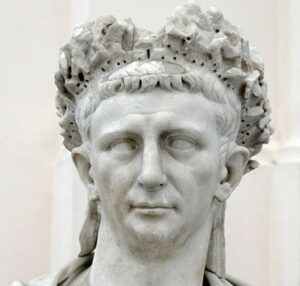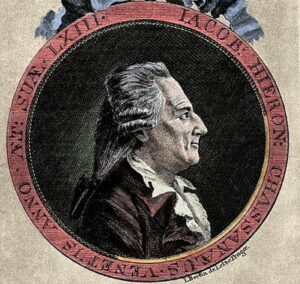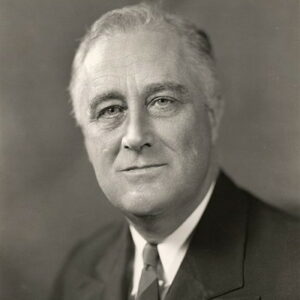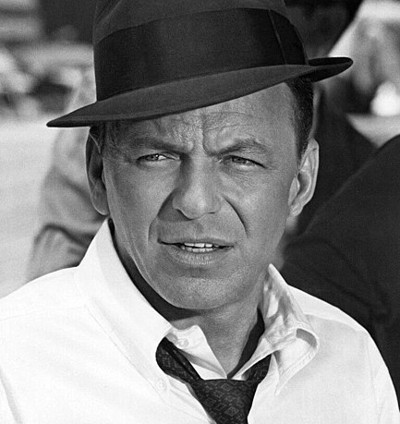 Many people know that gambling isn’t a new activity. It has been around for centuries, dating all the way back into civilisations and nations past. It has definitely evolved since those early days but the general premise behind gambling is pretty much always the same.
Many people know that gambling isn’t a new activity. It has been around for centuries, dating all the way back into civilisations and nations past. It has definitely evolved since those early days but the general premise behind gambling is pretty much always the same.
Throughout the years, many people have become famous in the gambling world and this is something that has continued on to this day. There are various people who are famous in the world but who also gamble. We’re talking about film stars, singers, sportsmen and women, and so on but we want to put those modern-day famous people to one side for a moment.
Instead, we want to take a look back in history. After all, famous people have been getting involved in gambling for a long time. Who are these people? What are they famous for other than their gambling activity? Which games did they play? How much did they win or lose when gambling? All these questions are what we will be looking into here, so, join us for a closer look at famous gamblers in history.
Tiberius Claudius Caesar Augustus Germanicus (10 BC – 54 AD)

The fourth Roman emperor, Claudius ruled the empire between AD 41 to 54. He was the first Roman emperor to actually be born outside of Italy. Due to sickness at a young age, he suffered from a limp and slight deafness. Even though he had little experience, Claudius was a capable administrator. He expanded the imperial bureaucracy, including freedmen in such. Not only that, but he restored the empire’s finances following Caligula’s excessive reign.
The Romans in general were big fans of gambling, though. Depictions of Romans betting on animal fights are present on ancient pottery but many say that Emperor Claudius was more into gambling than anyone else. While he was the head of the Roman Empire, he didn’t have much to do with his time. He spent a lot of it drinking and gambling.
Claudius was so obsessed with gambling that he had a specific carriage outfitted for it. It had a topple-proof board installed, allowing to gamble with friends while on the move. He also organised and attended a variety of games during his reign. This included chariot races and gladiatorial fights. Both were catalysts for gambling to take place. Claudius even wrote the book on Roman games and dice, displaying his dedication to it even more. There’s no wonder his life inspired the historical novel, I, Claudius.
John Montagu (1718 – 1792)
A British statesman and 4th Earl of Sandwich, John Montagu succeeded his grandfather. He acquired the position in 1729, at age 10. Throughout his life, he held various military and political offices, too. They include Postmaster General and First Lord of the Admiralty. Plus, claims suggest that he was the eponymous inventor of the sandwich.
Montagu was also a very dedicated gambler, though. He would rarely, if ever, leave the table during a game. This would happen for such extended periods of time, that he would often miss meals.
One retelling of an instance like this tells of him requesting a meal to fit in with his gambling. Montagu asked for a piece of salt beef between two pieces of toasted bread. This came about so he wouldn’t get grease from the meat on his fingers while playing and that is what led to the claim that he created the sandwich. Stories suggest that his friends would later ask for “the same as Sandwich”, leading to its name. It begs the question as to whether gambling is responsible for the sandwich?
Some people have debunked that idea on the creation of the sandwich. His biographer N. A. M. Rodger states that he had a commitment to his duties. This included his roles in the navy, politics and to the arts. He likely ate the first sandwich at his work desk, rather than the gambling table. This doesn’t mean that he gamble a lot, though. Quite the contrary. The story still remains that he was a very big gambler often playing card games through the night.
Giacomo Girolamo Casanova de Seingalt (1725 – 1798)

Alive at the same time as John Montagu, but in a different country, this Italian was also a keen gambler. Giacomo Casanova was an adventurer and author, born in the Republic of Venice. It is his autobiography, Histoire de ma vie, that serves as an authentic source of European social life at the time. Following his second exile from Venice, Casanova began writing in French. Yet his complicated and elaborate affairs with women have led to bad associations. A ‘Casanova’ today is very much thought of as a womanizer.
Gambling was quite the common recreation in the circles that Casanova moved in. In his own memoirs, he discusses many forms of 18th-century gambling. This includes lotteries, basset, faro, piquet, whist, quinze, biribi and primero. He claimed that there was a passion for all these forms of gambling amongst the nobility. Yet scams of all sorts were also common back then, which amused Casanova.
He would gamble throughout his adult life, winning vast amounts and losing the same. Casanova received professional tuition in gambling affairs, too. Yet this didn’t stop him from cheating on occasion, either. His memoirs state that he was “relaxed and smiling” when suffering losses but yet, he also states that he “won without covetousness” but if duped in an outrageous way by an opponent, Casanova could react in a violent way. Sometimes, he would request duels with his competition.
He did use gambling as a shrewd way of making connections or the chance to make quick money but his practice was also quite compulsive at times, leading to reckless behaviour. This was usually the case when he involved himself in a new sexual affair.
It is also the case that Casanova convinced King Louis XV to start France’s first lottery. Upon his move to Paris, he informed the king that it could make money for the military school and it turned out to be quite the profitable venture for both Casanova and Louis. Each of them acquired around 300,000 francs from its operation.
Queen Marie Antoinette (1755 – 1793)

One of the most famous queens in history is Marie Antoinette. The last queen of France before the French Revolution, she became dauphine in 1770 at age 14. This occurred upon her marriage to Louis-Auguste, heir apparent to the French throne. Upon his ascent to the throne as Louis XVI, she became queen. She was an unpopular monarch with the French people. Many accused her of promiscuity, extravagance and harbouring sympathies to France’s enemies. It was also said that her children were illegitimate. During the Revolution, the blame for the country’s financial crisis landed on her.
Marie Antoinette spent heavy amounts of money on fashion, luxuries and gambling and she continued with this even though France was suffering financially. Her spending habits became so extreme that her mother expressed concern to her. She noted the civil unrest it was starting to cause, with a series of riots having taken place.
The French First Republic charged Louis XVI with treason after the fall of the monarchy. He was found guilty and condemned to death by guillotine on January 21, 1793. Marie Antoinette fell into a deep period of mourning. After her husband’s execution, her fate became a central focus of the National Convention. In the end, a trial took place by the Revolutionary Tribunal. A guilty verdict came about on three charges:
- Depletion of the national treasury
- Conspiracy against the internal external security of the State
- High treason
At 12:15 p.m. on October 16, 1793, Marie Antoinette had her head cut off by the guillotine. After the execution, she became a symbol abroad. American statesman Thomas Jefferson wrote about her in 1821, claiming:
“Her inordinate gambling and dissipations, with those of the Count d’Artois, and others of her clique, had been a sensible item in the exhaustion of the treasury…”
He went on to state if there had been no queen at the time, there would have been no revolution.
Wolfgang Amadeus Mozart (1756 – 1791)

There are various classical musicians who are well-known throughout the world. Mozart is one such composer, despite the fact that he lived a short life. Born in Salzburg, in the Holy Roman Empire, he was a musician at court at 17. Yet he grew tired of this position and when visiting Vienna in 1781, he stayed there.
Mozart continued writing music while in Vienna and achieved a certain level of fame but this came with very little financial security. He never managed to secure a permanent position at court. Thus, to maintain his higher standard of living, he needed to get cash elsewhere. This came about from teaching music to children and gambling. Through it, he was able to move in aristocratic circles and secure future projects.
It is a common belief that he grew so obsessed with gambling, that he racked up big debts. The repayment of these debts came from his earnings with his music and this is another reason why financial security was never on the books for him. Some historians believe that he squandered large sums of money this way. Yet others suggest gambling was more of a pastime than something he had a compulsion with.
Franklin D. Roosevelt (1882 – 1945)

Even though he is one of the most successful presidents, he was also a huge fan of gambling. Poker was his game of choice, although he never entered into high stakes games. That’s where he differs from many people on this list. Instead, he would organise a game with his second-floor White House associates a few times a week. They would take place in the same room where he would give his famous “fireside chats”. During those talks, he would often play around with poker chips. The clicking and clacking noises would often play down the radio waves.
The poker table of FDR would usually feature well-known people of the day. A weekly lunch and game were often had with writer and humourist Mark Twain but as noted, this never entered into high stakes territory. Roosevelt would always refuse to up the ante beyond 10 cents. He had a particular affection for playing seven-card stud with one-eyed jacks wild and he’s not only the president to play a bit of poker, either. Ulysses S. Grant, Abraham Lincoln and Harry Truman are all known to have been fans.
Frank Sinatra (1915 – 1998)

Ole ‘Blue Eyes himself. Mr Frank Sinatra. One of the most popular entertainers of the 1940s, 50s and 60s. He is among the world’s best-selling music artists, having sold around 150 million records. Born to Italian immigrants in Hoboken, New Jersey, it was Bingo Crosby who influenced him. He went on to have big music hits with songs like “New York, New York” and “My Way”.
Many already know that Sinatra was a huge fan of casino gaming. As leader of the Rat Pack, he spent a lot of time in Sin City. His first performance there was in 1951, when he appeared at the Desert Inn and it is in part down to him that Las Vegas has the glitzy image it has today. Regular performances at the Sands drew even more people in.
Wherever he appeared, he wanted to have a seat at a casino table and this led to him even running his own casino in 1960. The Cal Neva, which still stands today, straddles the border of California and Nevada. Within, he built the Celebrity Room, which attracted many show business friends. Red Skelton, Marilyn Monroe, Victor Borge and others all showed up there. By 1962, Sinatra reportedly had a 50% share in the hotel of the Cal Neva. He has gambling licence stripped temporarily in 1963 after Sam Giancana appeared there. The American mobster was not welcomed by the FBI or Nevada Gaming Control Board.
Due to this, Sinatra agreed to give up his share in Cal Neva. Following support from Ronald Reagan in 1981, he had his licence restored, though. When Sinatra passed away in 1998, the lights of the Las Vegas Strip were dimmed in tribute.